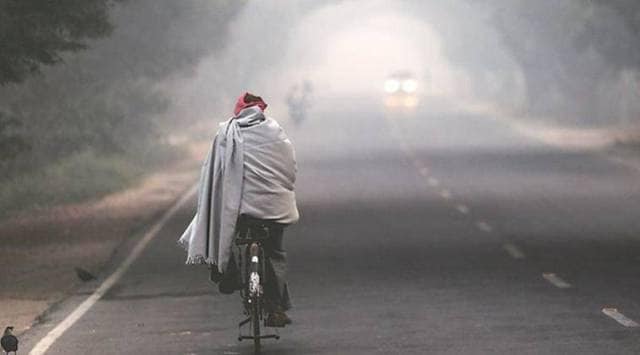Delhi: Pollutant study gets underway
The project, called ‘real-time source apportionment study and pollution forecasting’, was approved by the Delhi Cabinet last year, and the Delhi government had signed a memorandum of understanding with IIT-Kanpur for the study.
 At a review meeting held Tuesday, the IIT-Kanpur team informed the Delhi government of the progress made on the project. (Representational)
At a review meeting held Tuesday, the IIT-Kanpur team informed the Delhi government of the progress made on the project. (Representational)A source apportionment study is underway for air pollutants in Delhi, spearheaded by a team from the Indian Institute of Technology Kanpur.
The project, called ‘real-time source apportionment study and pollution forecasting’, was approved by the Delhi Cabinet last year, and the Delhi government had signed a memorandum of understanding with IIT-Kanpur for the study.
The project is expected to help pinpoint sources of air pollutants in the city. It is meant to gauge the contribution of different sources like vehicular emissions, biomass burning, stubble burning, dust and industrial emissions to air pollution in Delhi. The pollution forecasting system is likely to provide hourly, daily and weekly forecasts on air pollution.
 IIT-Delhi, The Energy and Resources Institute (TERI), and the Indian Institute of Science Education and Research (IISER), Mohali, are also part of the team undertaking the study, while the Delhi Pollution Control Committee (DPCC) is the nodal agency.
IIT-Delhi, The Energy and Resources Institute (TERI), and the Indian Institute of Science Education and Research (IISER), Mohali, are also part of the team undertaking the study, while the Delhi Pollution Control Committee (DPCC) is the nodal agency.
TERI is preparing an emissions inventory this year, which will be utilised for forecasting air pollution. The Indian Institute of Tropical Meteorology had developed an emissions inventory for the city in 2018, for the SAFAR air pollution forecasting system. The new inventory is likely to be an updated, advanced one. An emission inventory is a “listing by local sources of air pollutant emissions and amount of air pollutants released as a result of a specific process in a particular geographic region during a specific time period,” according to the SAFAR inventory.
At a review meeting held Tuesday, the IIT-Kanpur team informed the Delhi government of the progress made on the project. The purchase of equipment for the study, like real-time ambient air analysers and particulate matter and ion analysis systems, is underway, according to a communication from the government.
Reena Gupta, the advisor to the Delhi Environment Minister, said, “The availability of pollution forecasting on an hourly basis for the next seven days will be extremely crucial for the government to take data-backed policy decisions around school closures, construction site bans, vehicular restrictions, among others. Currently, due to the absence of a reliable forecasting system, we are bound to make decisions based on previous years’ experience rather than the future forecast.”







